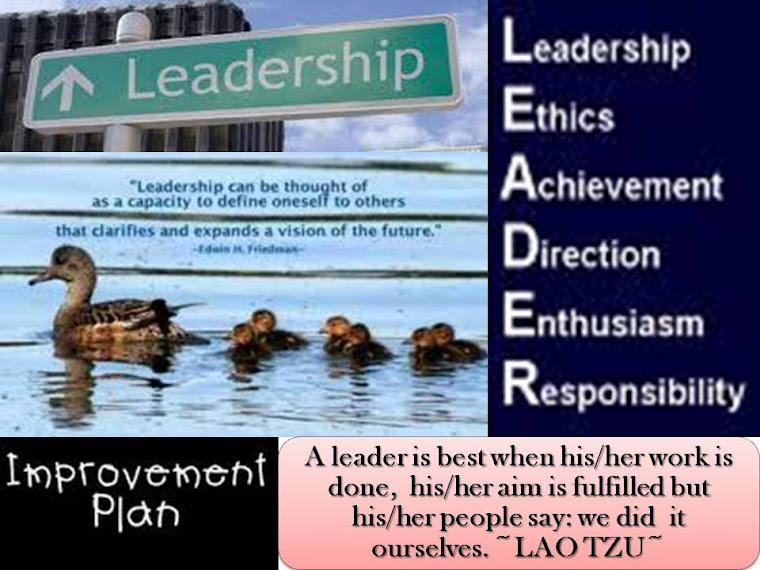 Jean Lipman-Blumen (2005) has studied a different kind of leadership exist in an organization - including educational organization. Jean came out with the Conceptual Framework of TOXIC LEADERSHIP. I would like to share this info and may be it can help us - the leaders of educational organization - to be aware of and avoid it. We shall consider as TOXIC LEADERS those individuals who shows one or more of the following PERSONAL QUALITIES OF TOXIC LEADERS;
Jean Lipman-Blumen (2005) has studied a different kind of leadership exist in an organization - including educational organization. Jean came out with the Conceptual Framework of TOXIC LEADERSHIP. I would like to share this info and may be it can help us - the leaders of educational organization - to be aware of and avoid it. We shall consider as TOXIC LEADERS those individuals who shows one or more of the following PERSONAL QUALITIES OF TOXIC LEADERS;- LACK OF INTEGRITY that reveals leaders as cynical, corrupt or untrustworthy;
- INSATIABLE AMBITION that prompts leaders to put their own sustained power, glory and fortunes above their followers' well-being;
- ENORMOUS EGO that blind leaders to the shortcomings of their own character and limit their capacity for self-renewal;
- ARROGANCE that prevents toxic leaders from acknowledging their mistakes and instead leads to blaming others;
- AMORALITY that makes it nigh (nearly) impossible for toxic leaders to discern right from wrong;
- AVARICE that drives toxic leaders to put money and what money can buy at the top of their list;
- FAILURE TO UNDERSTAND to the nature of relevant problems and FAIL TO ACT COMPETENTLY & EFFECTIVELY in situation requiring leadership;
- COWARDICE that leads them to shrink from the difficult choice and,
- RECKLESS disregard for the costs of their action to others as well as to themselves.
 TOXIC LEADERS, initially charm but ultimately manipulate, mistreat and undermine their followers, engage in a wide range of destructive behaviours such as failing to nurture othe leaders, failing to recognize good followers and ignoring / promoting incompetence, cronyism and corruption, behaving incompetently by misdiagnosing problems and failing to implement solutions to recognized problems.
TOXIC LEADERS, initially charm but ultimately manipulate, mistreat and undermine their followers, engage in a wide range of destructive behaviours such as failing to nurture othe leaders, failing to recognize good followers and ignoring / promoting incompetence, cronyism and corruption, behaving incompetently by misdiagnosing problems and failing to implement solutions to recognized problems.












No comments:
Post a Comment